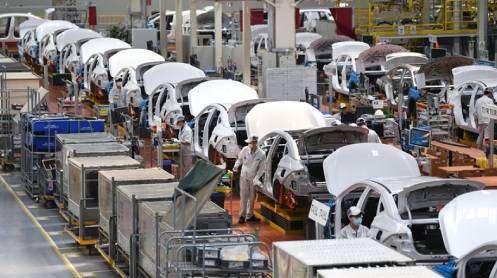LAHORE: Pakistan’s auto industry has raised serious concerns over the federal government’s target of achieving 30% electric vehicle (EV) penetration by 2030, calling the goal both ambitious and daunting for a country grappling with economic challenges.
Industry veteran Jamil Asghar, with over three decades of experience in the motorcycle sector, questioned the feasibility of the target by drawing comparisons with India’s experience. He noted that despite massive financial interventions over the past decade — including FAME I and II schemes and the recent PM-EDRIVE initiative — India’s EV penetration remains low, with electric two-wheelers making up only 3.7% and electric cars just 1.5% of total sales as of October 2024.
“If India couldn’t meet similar targets despite pouring in billions, how can Pakistan — with a limited fiscal space — achieve 30% in just five years?” he asked.
Asghar pointed out that while excitement is building around New Energy Vehicles (NEVs) in Pakistan, most units are being imported as completely knocked down (CKD) kits and merely assembled locally. Unlike internal combustion engine (ICE) vehicles, which enjoy high localisation levels — over 95% for two-wheelers and 65% for four-wheelers — NEVs rely heavily on imports, making them unaffordable for the average consumer.
He also highlighted that global EV adoption has been heavily reliant on subsidies. Without significant incentives on both the supply and demand side, he warned, EV sales in Pakistan are unlikely to gain traction. “Whenever global subsidies are removed, EV demand drops sharply,” he noted.
Given the high cost of NEVs, limited infrastructure, and lack of broad-based incentives, the industry fears that the government’s EV policy could end up benefitting only a small, affluent segment of society — at the expense of public funds — without significantly impacting environmental outcomes.
Asghar urged policymakers to adopt a more realistic, inclusive, and phased approach to EV adoption that aligns with Pakistan’s economic realities and prioritises broader accessibility.
Story by Shahram Haq







